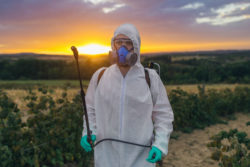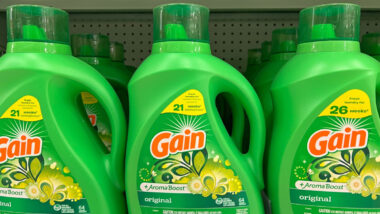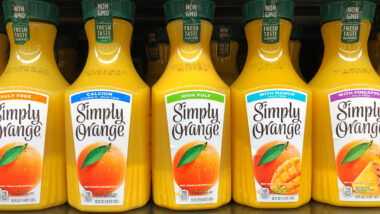
Plaintiff Charles S. says his doctor diagnosed him with the cancer in August 2016. He claims he became aware that Roundup possibly was linked to the development of non-Hodgkin’s lymphoma in July 2015 when the International Agency for Research on Cancer (IARC) published its evaluation of glyphosate.
The IARC is an agency of the World Health Organization (WHO) and classified glyphosate as a probable carcinogen to humans. The IARC said the cancers most associated with exposure to glyphosate are non-Hodgkin’s lymphoma, lymphocytic lymphoma/chronic lymphocytic leukemia, B-cell leukemia and multiple myeloma.
Ever since Monsanto released its Roundup line of glyphosate-based herbicides in 1974, the company has insisted the products are not harmful to humans or the environment.
Allegations in Roundup Cancer Lawsuit
In 1985, the Environmental Protection Agency (EPA) originally classified glyphosate as a Group C material, meaning it was possibly carcinogenic to humans.
According to the Roundup cancer lawsuit, Monsanto allegedly pressured the EPA to change glyphosate to a Group E classification in 1991, which meant there was evidence of non-carcinogenicity in humans. The EPA still insisted that they were not saying that glyphosate does not cause cancer, but that the classification was based on evidence at the time.
“On two occasions, the EPA found that the laboratories hired by Monsanto to test the toxicity of its Roundup products for registration purposes committed fraud,” alleges the Roundup cancer lawsuit.
During the initial EPA registration process for Roundup, Monsanto hired Industrial Bio-Test (IBT) laboratories to perform toxicology tests on Roundup and to provide research evaluations. The FDA conducted an inspection of IBT labs in 1976 and reportedly found discrepancies between the raw data and the finalized results.
The EPA followed up with its own audit of IBT labs and found “routine falsification of data” at IBT and that it was difficult to take the studies seriously “when they said they took specimens of the uterus from male rabbits.”
In 1983, three of IBT’s top executives were convicted of fraud.
In a second case of alleged data falsification, Monsanto hired Craven Laboratories to conduct Roundup studies in 1991. Later that year, Craven’s owner and three employees were indicted on charges of fraudulent laboratory practices in the testing of pesticides and herbicides. All were later convicted.
In 1996, the New York Attorney General filed a lawsuit against Monsanto, alleging the company was making false and misleading statements regarding Roundup in its advertising. The lawsuit specifically questioned Monsanto’s statements that Roundup was “safer than table salt” and “practically non-toxic” to mammals, birds and fish.
In November 1996, Monsanto reportedly entered into an Assurance of Discontinuance with the New York Attorney General. Monsanto agreed to stop advertising its glyphosate-based products as safe, non-toxic, harmless and free from risk, among other promises not to deceive the public. Monsanto has allegedly not changed its advertising tactics in any other state.
The Roundup cancer lawsuit also alleges that studies indicate glyphosate alone is not as dangerous as the multi-ingredient Roundup mixture. Some Roundup additives considered inert might actually energize glyphosate’s toxicity, according to the lawsuit.
The Roundup Cancer Lawsuit is Case No. 4:18-cv-00386-LCK in the U.S. District Court for the District of Arizona.
If you or a loved one developed cancer after using Roundup as a farm worker or home gardener, you may have a legal claim. Legal migrant farm workers may also seek help. Learn more by filling out the form on this page for a FREE case evaluation.
ATTORNEY ADVERTISING
Top Class Actions is a Proud Member of the American Bar Association
LEGAL INFORMATION IS NOT LEGAL ADVICE
Top Class Actions Legal Statement
©2008 – 2024 Top Class Actions® LLC
Various Trademarks held by their respective owners
This website is not intended for viewing or usage by European Union citizens.
Get Help – It’s Free
Join a Free Roundup Cancer Class Action Lawsuit Investigation
For the most up-to-date information on this case, click here.












